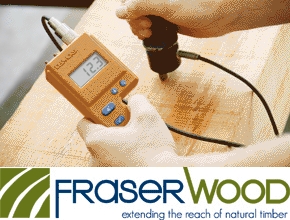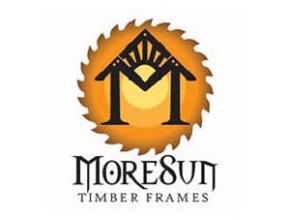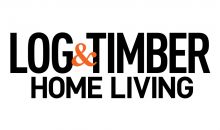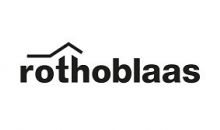Let’s Talk About Search Engines and SEO

Anonymous
By: Allison Aurand
Ultimately, as a business owner working in an online world, you’re looking for your website to boost your “conversion rate.” Conversion Rate Optimization (CRO) seeks to increase the percentage of website visitors that take a specific action (often submitting a web form, making a purchase, signing up for a trial, etc.). In doing so, businesses are able to generate more leads or sales without investing more money on website traffic, hence increasing their marketing return on investment and overall profitability.
How does that happen, and why are search engines and your “search engine optimization” (SEO) critical?
Let’s begin with some numbers:
- Local Search Engine Optimization (SEO) – Local SEO marketing is the process of optimizing your owned properties to generate traffic from location-based searches. The following is worth noting about local SEO:
- 72% of consumers who did a local search visited a store within 5 miles. (WordStream, 2016)
- 30% of mobile searches are related to a location. (Google, 2016)
- Local searches lead 50% of mobile searchers to visit businesses within one day (Google, 2014)
- 78% of local mobile searches result in offline purchases. (Search Engine Land, 2014)
- Mobile Search
- More Google searches take place on mobile devices than on computers in 10 countries, including the US and Japan. (Google, 2015)
- 51% of smartphone users have discovered a new company or product when conducting a search on their phone. (Google, 2015)
Now that we know the power of searches, let’s talk about the most common one, the “organic” search. An organic search simply means the user is entering one or more search items into a search engine. Organic search results are listings on search engine results pages that appear because of their relevance to the search terms, as opposed to their being advertisements. (In contrast, non-organic search results may include pay per click advertising.) For some perspective on the power of organic searches, and your site having relevant keywords, consider this: Google gets more than 100 billion searches a month, according to Mashable.
Blog posts can also boost your traffic and lead generation. HubSpot reports that 10% of blog posts are compounding, meaning organic search increases their traffic over time, but they generate nearly 40% of overall traffic. One compounding post can generate as much traffic as six “decaying” posts. What comprises a compounding post?
- Go “tactical,” not “topical” – broader posts mean broader appeal
- Use the perfect title – the best compounding posts include “how,” “why,” “best,” and “what,” and run 6-13 words in length
- Readability of post – think 800-1400 words (too short and you lose chances to pull keywords for SEO purposes, too long and you may lose your reader)
Read more about how to build a great compounding post here: https://research.hubspot.com/reports/compounding-blog-posts-what-they-are-and-why-they-matter#LINK2
Next month, we’ll touch on social media: what platforms are effective, and what do the numbers say?
Click on a photo to enlarge.
This blog article has been viewed 93 times.
Posted
Jan 1, 2018 1:57 PM PST.
Edited on Jan 16, 2018 6:00 AM.report
New Blog Posts
- Hidden Trace Farm CBW: Arrival
286 views - Heartwood 2020: Timber Framing II
252 views - Heartwood 2020: Timber Framing Intensive, July 9
118 views - Heartwood 2020: Timber Framing Intensive, July 10
225 views - Heartwood 2020: Timber Framing Intensive, July 7
85 views - Heartwood 2020: Timber Framing Intensive, July 8
119 views - Ekvn-Yefolecv Roundhouse CBW, Day 4 (November 4, 2019)
377 views - Ekvn-Yefolecv Roundhouse CBW, Days 2 & 3 (November 2&3, 2019)
251 views - Before the Build, Ekvn-Yefolecv Roundhouse CBW (October 31, 2019)
226 views - Ekvn-Yefolecv Roundhouse CBW, Day 1 (November 1, 2019)
312 views - After the Sunrise Build: Thank You from the Guild
167 views - Day 7, Sunrise Mill CBW (October 4, 2019)
363 views - Day 6, Sunrise Mill CBW (October 3, 2019)
211 views - Day 5, Sunrise Mill CBW (October 2, 2019)
209 views - Day 4, Sunrise Mill CBW (October 1, 2019)
174 views - Day 3, Sunrise Mill, September 30, 2019
224 views - Day 1, Sunrise Mill, September 28, 2019
233 views - Day 2, Sunrise Mill, September 29, 2019
229 views - Su Casa - Summer 2019
69 views - The Work Goes On: Day Two at Lake Roesiger
Lake Roesiger Community Building Workshop continues, with "more of the same"...
304 views - Orientation, Organization, Layout, and Fabrication: Day One at Lake Roesiger
Day One of the Lake Roesiger Community Building Workshops in Snohomish...
226 views - The Stage is Set: Lake Roesiger Community Building Project
"Day Zero" at the Lake Roesiger Community Building Workshop (Snohomish County,...
188 views - Guild Member reflections on the Notre Dame Fire
Notre Dame Fire Reflections
214 views - 3rd Timber Framers Gathering of Australia in the Grampians, VIC 27/28th October 2018
277 views - Weekly Guild Note -31 August 2018
Complex Roof Workshop to be offered at the Eastern Conference. North...
134 views - Review of Timber Innovation Act and 2018 Farm Bill
199 views - Unforgettable: Timber Framers Guild Western Conference
125 views - Your TFG Dashboard Tutorial
48 views - View from Here, Scantlings Issue 214, April 2018
74 views - 2018 TFEC Code of Standard Practice released
243 views - RFQ for Project Manager for 2018 TFG Community Building Projects
Timber Framing, Project managers
103 views - Thank you Ellen and Rick!
117 views - Everyday Craft
77 views - TFG collaboration with Kennebec Valley Community College
183 views - Brand Camp Re-Cap
66 views - Build Your Brand, Build Your Circle, Build Your Influence - Part One
128 views - Let’s Talk About Search Engines and SEO
93 views
Recent Comments
- Guild Member reflections on the Notre Dame Fire
Notre Dame Fire Reflections
1 comment 214 views
Apr 30, 2019 2:00 PM - TFG collaboration with Kennebec Valley Community College
1 comment 183 views
Mar 21, 2018 4:03 PM - Review of Timber Innovation Act and 2018 Farm Bill
1 comment 199 views
Aug 10, 2018 6:27 PM - Everyday Craft
1 comment 77 views
Mar 3, 2018 9:41 AM







